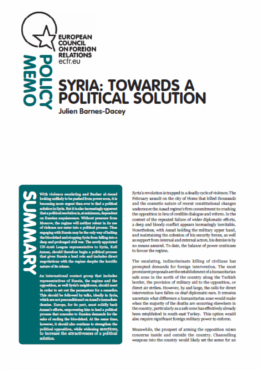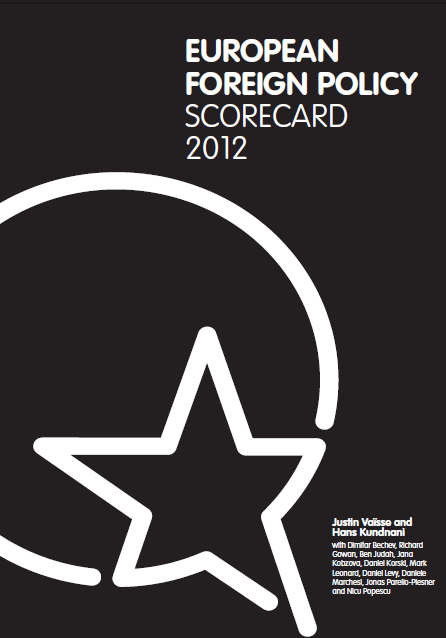Middle East and North Africa
Syria’s rebels will have to deal with Assad
No one wants to deal with dictators. But one year after the Syrian uprising began, the harsh truth is that Bashar al-Assad maintains the upper hand and the opposition – with its international backers – may have little choice but to cut a deal with him if they want to ease the Syrian people’s suffering.

Syria: Towards a Political Solution
An end to the bloodshed may necessitate talks with the regime
Jordan – no longer boring?
For so long a reliably boring country in the middle of a tumultuous region, there are signs that Jordan may soon become lively as demands for political reform and the wider impact of the Arab Awakening begin to reach Amman.

European Foreign Policy Scorecard 2012
Instead of helping to solve the world’s problems, Europe is now a problem itself
Egypt’s popular putsch
It is too early to write off Egypt's revolution. Unlike in the past, politics is now a live issue across the country, and that popular force is a difficult one to control or stop, and even the steps that have been taken now seemed impossible just over a year ago.
